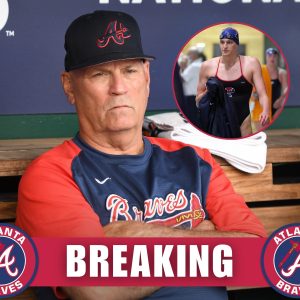The Future of the Dallas Cowboys Head Coaching Position: Wes Phillips’ Candidacy
The Dallas Cowboys find themselves at a pivotal moment in their journey as they head into the 2025 NFL season with uncertainty hanging over the future of their head coach position. Despite rumors swirling about potential replacements and extensions for Mike McCarthy, the franchise has yet to make a concrete decision. With all options seemingly on the table, one name that has been gaining traction is Wes Phillips, the offensive coordinator for the Minnesota Vikings. Could the son of former Cowboys head coach Wade Phillips and grandson of Bum Phillips be the future leader of America’s Team?

A Familiar Face with A Strong Coaching Lineage
Wes Phillips’ connection to the Cowboys runs deep, and it’s this familiarity with the organization that could make him a strong candidate for the head coaching role. Starting his NFL coaching career in 2007 as a quality control coach for the Cowboys, Phillips quickly made his mark, transitioning through various roles. His journey saw him becoming the assistant offensive line coach in 2011, then promoted to tight ends coach in 2013. He remained with the Cowboys during the transition from Wade Phillips to Jason Garrett, learning invaluable lessons along the way.
In 2014, Phillips moved to Washington to work under Kyle Shanahan before following him to the Los Angeles Rams in 2018. There, Phillips served as the tight ends coach and later as the passing game coordinator, contributing to the Rams’ Super Bowl victory in 2021. This exposure to the Shanahan/McVay coaching tree, coupled with his experience with the Cowboys, positions him as a well-rounded candidate who knows the franchise intimately while also bringing fresh, modern ideas to the table.
Experience Under the Shanahan/McVay Tree
One of the most intriguing aspects of Wes Phillips’ career is his time spent under the guidance of coaching masterminds Kyle Shanahan and Sean McVay. Known for their innovative offensive schemes, these coaches have revolutionized NFL offenses, and Phillips has been right there, learning and implementing their systems. Now with the Minnesota Vikings, Phillips continues to work within a similar offensive structure under Kevin O’Connell, who also hails from the McVay tree.
However, Phillips’ current role in Minnesota is different from those of his previous positions—he is not the playcaller. In his time with the Vikings, Phillips has been instrumental in game planning and in-game organization, ensuring the offense runs smoothly. His shift from the coaching booth to the sideline has been particularly noteworthy. The Vikings had been plagued by pre-snap penalties, and bringing Phillips down to the field seems to have solved the issue, showcasing his ability to adjust and make impactful changes in real-time.

What Sets Wes Phillips Apart in Offensive Strategy
Though Wes Phillips isn’t the one calling plays in Minnesota, his responsibilities still highlight his deep understanding of offensive football. According to Tyler Forness from A to Z Sports, Phillips’ work has been crucial in the Vikings’ success. Like O’Connell, Phillips excels at organizing the game plan and ensuring the team is prepared for every scenario. His background in the Shanahan/McVay system is a significant asset, allowing him to understand and execute offensive strategies with precision.
What sets Kevin O’Connell apart from Shanahan and McVay is his approach to attacking defenses. O’Connell thrives on hitting deep shots downfield—an aggressive style that has led to explosive plays. His quarterback, Sam Darnold, led the league in several categories, including completions (35), yards (1,192), and yards per attempt (17.5). This approach could be exactly what the Cowboys need, especially with a quarterback like Dak Prescott who has the arm strength and ability to make those long throws.
A Longshot, But A Candidate Worth Considering
While it may seem like a longshot for Wes Phillips to be named the next head coach of the Dallas Cowboys, his background, experience, and familiarity with the team make him a candidate worth considering. If the Cowboys are looking for a fresh face who can bring a modern, dynamic offensive strategy to the team, Phillips could be the perfect fit. His deep ties to the Cowboys and his coaching pedigree under two of the NFL’s brightest minds provide a compelling argument for his candidacy.
At the end of the day, the Cowboys need someone who can provide leadership and decisiveness, qualities that have been sorely missing from the organization in recent years. If Phillips can bring the same level of innovation and efficiency that he’s learned from Shanahan and McVay, he could be the change the Cowboys need to elevate them to Super Bowl contention once again.
In the end, fans and analysts alike may find themselves rallying behind a new direction for the Cowboys, one that could see a familiar face in a new role, ready to lead America’s Team into a new era.





